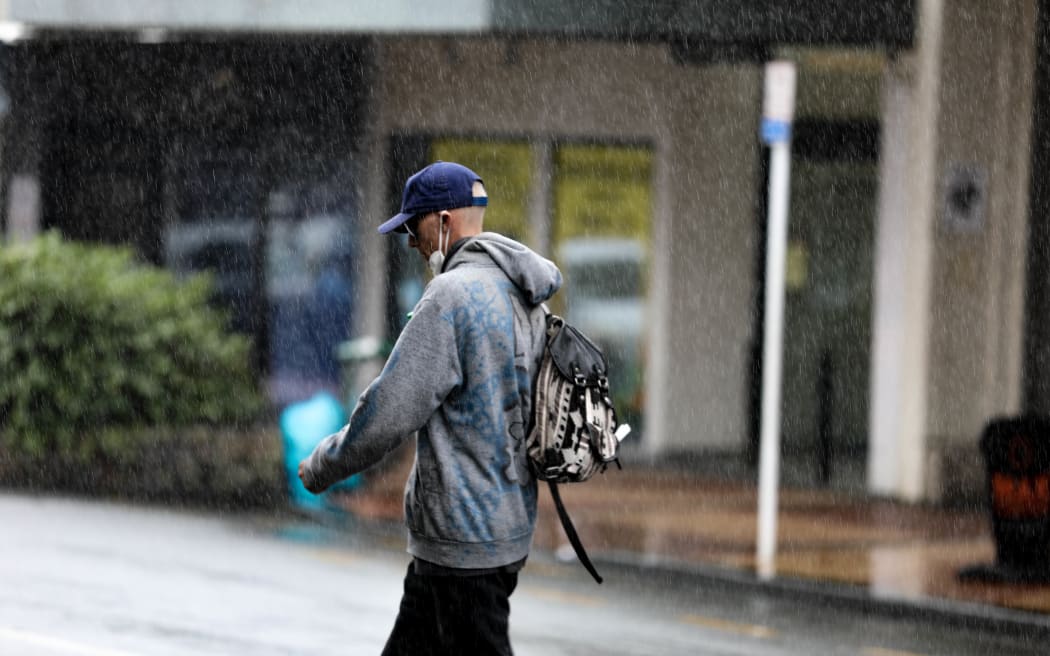Lifestyle
Advocates Demand Action to Combat Māori Youth Homelessness

Advocates for youth homelessness are urging immediate action to support vulnerable young people lacking safe and stable housing. In Auckland, statistics reveal a staggering 90 percent increase in homelessness since September 2022, with estimates indicating that nearly half of all homeless individuals are under the age of 25. This complex issue is exacerbated by recent changes to emergency housing criteria, according to various experts in the field.
One prominent voice in this fight is Māhera Maihi, CEO of the Mā te Huruhuru Charitable Trust. Maihi oversees two youth housing facilities that adopt a specific Māori approach to support. She highlights that many young Māori express a desire for accommodation that aligns with their cultural values, stating, “Māori, or young people, are saying that they want more kaupapa Māori supported accommodation.”
The challenges facing these young individuals are multifaceted. Maihi points to unsafe and unstable environments often caused by family violence, breakdowns, and overcrowding. She also notes that queer and gender-diverse youth frequently encounter additional barriers. “We’re seeing that the system is very hard to navigate for these young people,” she explains. Issues range from lacking essential documentation, like bank accounts and IDs, to significant financial hurdles, such as affording bonds and upfront housing costs.
Another critical concern is the so-called “care-to-homelessness pipeline.” Maihi emphasizes that escalating cost pressures are making housing unaffordable for many young people. She recalls the poignant feedback from youth who feel they are losing their cultural identity: “They’d rather be at home learning their pepeha than on the streets popping cars for somewhere to sleep.”
Changes to emergency housing regulations implemented last year have further complicated matters. Under the new rules, applicants may be required to demonstrate that they did not contribute to their housing instability. Additionally, stricter obligations have been placed on clients to secure more permanent accommodations. These measures have drawn criticism from advocates like Maihi, who argue that they hinder rather than help vulnerable youth.
At He Pā Piringa, a facility run by Maihi’s organization, there are 18 beds designated for young people aged 17 to 21 who are experiencing homelessness. The program adopts a family-centered approach and emphasizes cultural values, providing a safe environment that respects the young residents as taonga (treasures).
Maihi elaborates on the unique aspects of their approach: “We use wananga as a concept. Any young person who comes to our kaupapa, we take them to the marae. There are so many frameworks we can lean on, as our tupuna (ancestors) have already blueprinted for us.” This cultural immersion helps foster a sense of belonging and respect among the participants.
The results speak for themselves. Maihi reports that zero property damage has occurred at He Pā Piringa, a remarkable achievement not only for New Zealand but globally. Furthermore, there have been no police callouts for violence, demonstrating the effectiveness of their community-driven model.
Despite these successes, the true scale of youth homelessness among Māori remains largely unknown due to a lack of official data and a dedicated youth homelessness strategy. Many young people fall through the cracks of the existing social housing system because they do not meet the stringent rating criteria, which fail to account for their unique vulnerabilities.
Maihi explains, “We’ve been able to place 19 young people into forever homes, which is very difficult considering the social housing rating. Young people often can’t get more than an A9, but you need about an A17 or A18 to gain access to these housing options.”
To address these challenges, Maihi advocates for a “vulnerability multiplier” in the housing system to better reflect the complexities faced by young individuals. “Young people, obviously, have complex, high needs,” she asserts.
As discussions continue around youth homelessness in New Zealand, advocates like Māhera Maihi remain committed to finding sustainable solutions. They emphasize the need for systemic change that not only addresses immediate housing needs but also respects and uplifts the cultural identity of Māori youth.
-

 World7 days ago
World7 days agoPrivate Funeral Held for Dean Field and His Three Children
-

 Top Stories2 weeks ago
Top Stories2 weeks agoFuneral Planned for Field Siblings After Tragic House Fire
-

 Sports3 months ago
Sports3 months agoNetball New Zealand Stands Down Dame Noeline Taurua for Series
-

 Entertainment3 months ago
Entertainment3 months agoTributes Pour In for Lachlan Rofe, Reality Star, Dead at 47
-

 Entertainment2 months ago
Entertainment2 months agoNew ‘Maverick’ Chaser Joins Beat the Chasers Season Finale
-

 Sports3 months ago
Sports3 months agoSilver Ferns Legend Laura Langman Criticizes Team’s Attitude
-

 Sports4 weeks ago
Sports4 weeks agoEli Katoa Rushed to Hospital After Sideline Incident During Match
-

 Politics2 months ago
Politics2 months agoNetball NZ Calls for Respect Amid Dame Taurua’s Standoff
-

 World2 weeks ago
World2 weeks agoInvestigation Underway in Tragic Sanson House Fire Involving Family
-

 Entertainment3 months ago
Entertainment3 months agoKhloe Kardashian Embraces Innovative Stem Cell Therapy in Mexico
-

 Top Stories2 weeks ago
Top Stories2 weeks agoShock and Grief Follow Tragic Family Deaths in New Zealand
-

 Sports4 weeks ago
Sports4 weeks agoJamie Melham Triumphs Over Husband Ben in Melbourne Cup Victory



















